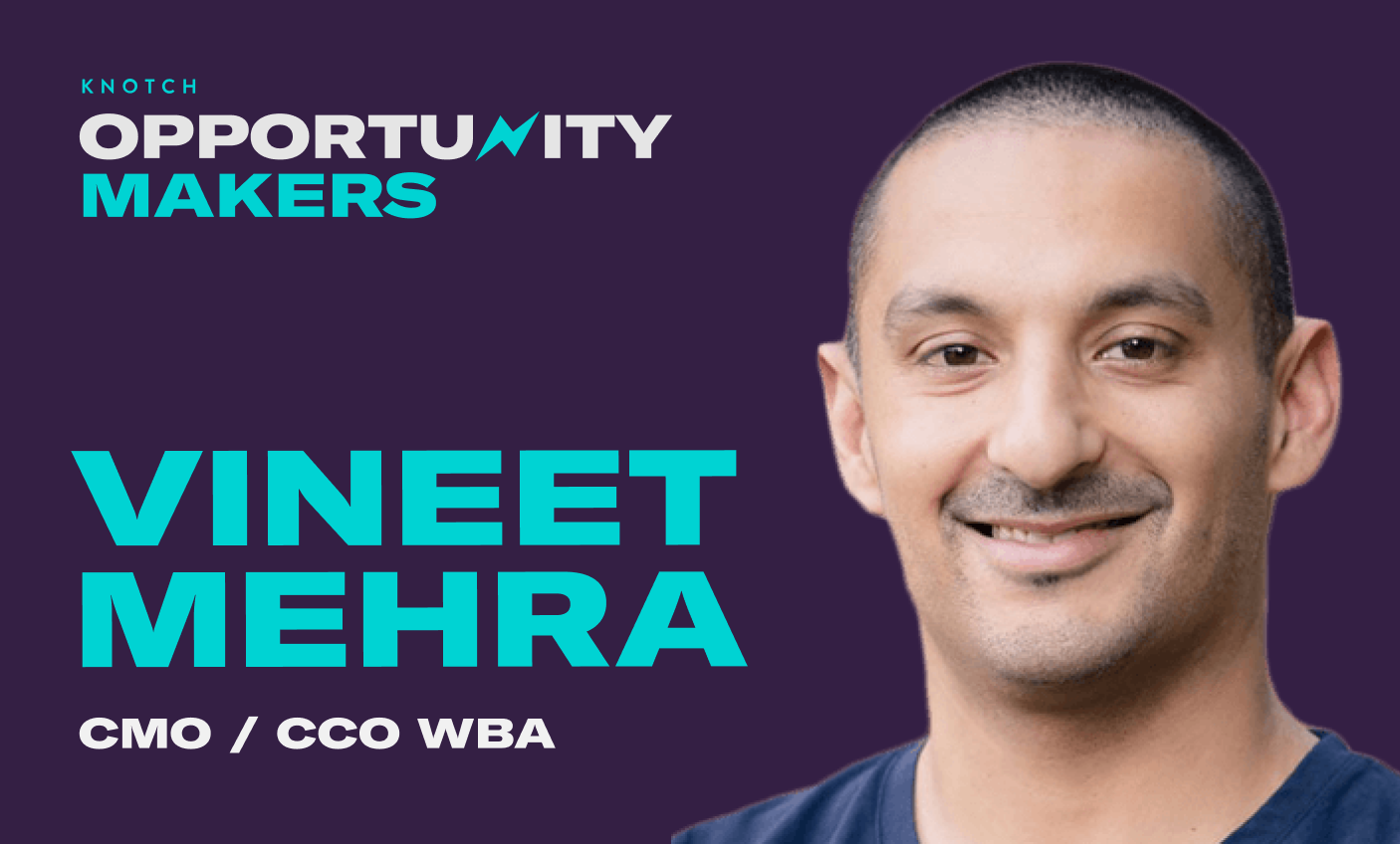In this Opportunity Makers interview, Garrison Gibbons, Head of People at Knotch connects with Emily Chang, CEO of China at McCann Worldgroup. Throughout the conversation, Emily touches on a variety of topics, including her experiences growing up as a child of immigrant parents, the intersectionality of her identities, and the power of embracing humor in your circumstances.

Garrison Gibbons: Can you describe you and your family’s experience with the immigration system?
Emily Chang: I was raised by immigrant parents, who came from Asia to the US to study. They didn't speak any English. We had the privilege of growing up in a very nice neighborhood, but I also remember always having less than.
Our family only went to the movie theater once a year, right around Christmas as a big family treat. I would stare longingly at the kids in line for buttered popcorn and slushies, but our family instead would smuggle Mandarin oranges into the theater.
I knew I simply wasn’t going to get any movie popcorn, so I learned to just enjoy it and not compare myself to what others had. I appreciate buttered popcorn today, because when you grow up humbly, you don't take anything for granted. I want my daughter to have that humility because it makes us better people and more appreciative.
GG: What were some other unique challenges that you experienced in a multicultural family in America?
EC: I learned agility as a child because I grew up with one foot in each world. At home, we're speaking Mandarin, and spending every weekend with groups of other Chinese immigrant families. But on the weekdays, I was immersed in American living. I learned flexibility and helped explain one world to the other.
Having to explain America to my mom and then Chinese customs to my Western friends made me develop empathetic thinking for mutual understanding. I love jobs where I can bridge different disciplines and different mindsets, because that's how I grew up. It's one of the ways I can add value both at home and in the workplace.
GG: How has this agility and humility shaped your role as a storyteller? How have your family experiences helped you in your career?
EC: I’ve literally become a storyteller, actually! I took the last year off to write a book, called The Spare Room. In the beginning it was stories of children that our family has provided room for in our spare bedroom. I call it our social legacy, that intersection of what you can uniquely offer with what somebody uniquely needs. We found an opportunity to do something meaningful.
My publisher pushed me to provide a more diverse range of stories, and it was then that I created my own role as a storyteller. I developed so much empathy for them, and a deep responsibility of accurately and meaningfully telling their story.
Learning to see the humor also comes to mind. After a bad car accident as a teenager, my dad fixed my car afterwards, leaving me to drive this old beater Toyota minivan. He had spray painted it a shiny gold color and it was essentially a strange gold wrinkled mess on the side. Instead of being embarrassed, I made a decision to own it. Whenever somebody joked about it, I laughed.
When you can identify and embrace humor in your circumstance, it can serve you well in life. We all have this battered, golden beige minivan in our lives. We can try to disguise it or deny it, but that just causes stress. So I embrace it and have a good laugh.
GG: How has the intersectionality of your identities as a woman and an immigrant affected your career? How do you celebrate those identities and discuss those challenges with others, like your daughter?
EC: Everybody sits at the intersectionality of many labels - it comes down to which ones you embrace. We can focus on breaking out of that label, or on who we are on the inside.
For instance, I feel very Chinese in America and very American in China. I could focus on those challenges, or the unique opportunity I have in the workplace. I can then help serve as that bridge we discussed earlier.
There are things that we can do to minimize unintended comments and tap into the value we bring, rather than the negativity. Though I don’t want to diminish the discrimination we face either. It’s a balance.
GG: How can brands showcase the value that immigrants add rather than “take”?
EC: Our responsibility as business leaders isn't just to reflect the accuracy of our country’s current state. Our responsibility is to make it better.
Diversity is about being asked to the dance, or hitting those numbers in the business world. Inclusion is then about being asked to dance. And belonging is feeling like you can dance like nobody's watching. So how do you go from those diversity numbers to a place where people feel like they belong?
This is what I consider when developing marketing ideas. We need to help somebody feel like they can dance like no one's watching, because that's how much they belong. When we seek to understand, it’s a deeper sense of sensitivity that requires vulnerability.
With that empathy, you can glean important insights into a person's life. You can then tell stories that not only resonate with them to deliver you business goals, but that pay tribute to who they are as individuals.






















